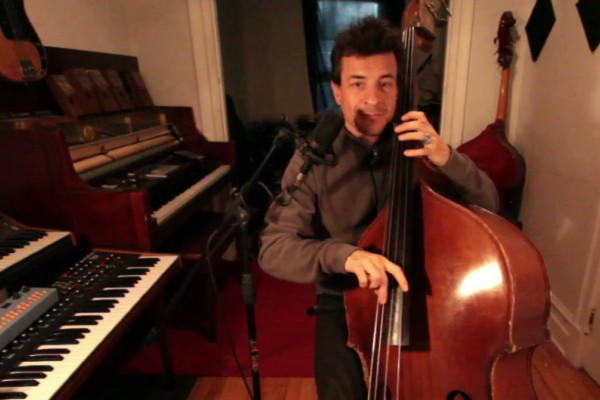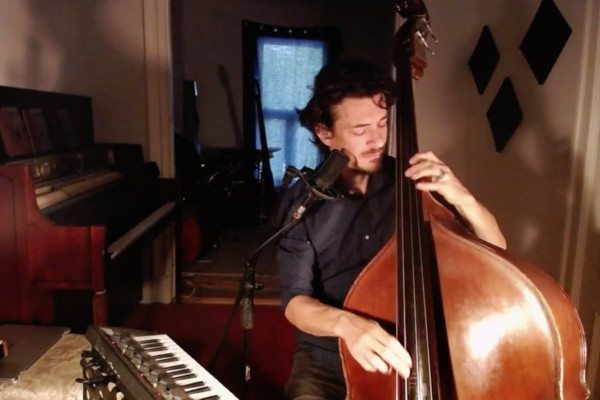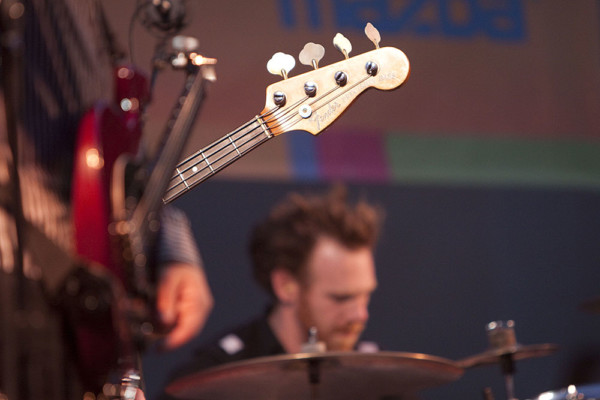Is It So Bad To Play The Root When I Solo?

Q: I’ve been working on my soloing and I had a question. It keeps getting repeated to me by other players, teachers, and books that I shouldn’t play the root when I solo. What do you think? Is it really such a bad thing?
A: I have a few thoughts on the subject. Some are in line with what you’ve heard and some aren’t. Much depends on the circumstance and if anything, I would say that there is no one rule for every situation.
I assume that you are talking more about the jazz realm than any other. There certainly isn’t anything wrong with playing the root, especially in a rock or blues situation. Indeed, I don’t think there is anything wrong with it in the jazz realm either but with a few caveats.
Most pianists, horn players, and guitarists practice a rootless lifestyle in the shed and on the bandstand. Rootless chords are considered a bit more harmonically interesting and improvisations are no different. Not to say that they never play the root but it’s more that they tend not to use it as a home base like many bassists tend to do when the first start soloing.
The reason that they can get away from the root so effectively is precisely because the bassist will be covering that ground, so they can orient themselves around other scale tones and tensions without redundantly covering the bottom note of the chord.
This is precisely why I don’t consider it particularly egregious when the bassist uses the root to resolve a line or ground a line in an improvisational melody. It is very likely that nobody is focusing on the root while the bassist solos, therefore, it might actually be more impactful.
Much depends on how the other musicians are voicing their chords, of course. If the pianist starts playing voicings with strong harmonic grounding (the root), then they may be intentionally setting you up to free yourself from that constraint. However, if the pianist is playing rootless voicings than there is no longer anybody grounding the sound of the harmony. In fact, if you are both landing on some of the same inversions, it can actually sound like you are playing the root, but of a different chord entirely! (that can be cool, too)
I will say that I think it crucial to your development as an improvising musician to explore melody and harmony from both a rooted and rootless perspective. The reason I think it’s good to force yourself not to orient around the root in the shed is that it gives you a broader perspective and understanding of harmony and how it lays across your fretboard. Being bassists, taught to operate from the root up from day 1, it takes some real time to get comfortable seeing harmony in a way that allows us to play from anywhere within the given chord scale. This is why I tend not to think in terms of key centers but more with regard to chord tones and available tensions for every chord I play over. If I just think, “well, this whole section is really just in E minor”, then I’ll likely just play licks in E minor which, to my ears, sounds like I’m playing at the harmony and not with or through it. Whereas if I think of every chord, make use subtly shifting tensions and chord tones, all the while listening for melodic opportunities, I’m much more likely to play an actual improvised melody.
I fully believe that if it sounds good to you, it is good. Your ability to hear more advanced harmony will evolve alongside your experience playing that kind of music, and your playing and note choices will likely change right along with it. My playing is still very much inside the harmony but that’s what sounds good to me on the bass specifically because of the range of the instrument. Certain tensions just don’t sound as good until you play them in a high enough range (which is why I feel harmonically freer when soloing on my 6 string as opposed to 4 string). That said, my note choices have evolved greatly in the past few years, and I now prefer the sound of things I actively disliked not that long ago.
If you really want to speak freely and fully explore your voice on the instrument, I would say to explore it all (a common theme in my columns here at No Treble). First, get comfortable with chords from the root up but then continue to push beyond that as you explore how to play through a myriad of chord changes. Learn melodies and transcribe soloists you dig (both on bass and on other instruments). You may discover certain things which just plain sound better on a guitar, for example, but you’ll also gain perspective on how other musicians perceive harmony. You’ll likely also learn a ton of great approaches along the way that you can integrate into your own vocabulary.
So rock the root! And then… avoid the root! It’s all good and you should strive to be comfortable with all sides of the equation. The key is fully exploring your options so you can really get to what you think sounds good, discovering what makes your voice unique in the process.
Now I know that some of you will have some thoughts on hand for this discussion. How did you get away from the root? Do you bother trying to get away from the root? Do you consider it taboo for the bassist to revolve his solo around the roots of chords? Please share your thoughts in the comments below.
Have a question for Damian Erskine? Send it to [email protected]. Check out Damian’s instructional books, Right Hand Drive and The Improviser’s Path.



